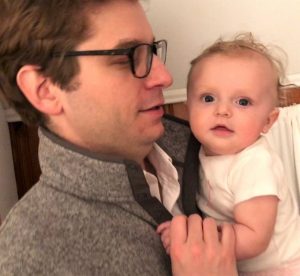
Breakfast in bed, a snooze in the hammock, and picnics in the park are some of the amenities dads will enjoy this Father’s Day, that yearly occasion for excusing dad from yard work and household chores to relax with his family, is also a time to give him some special recognition.
What makes a father worthy of those trophies which read, “To the World’s Greatest Dad”? Is it the new bike, or shoes, or toys he bought? Is it the trips he took with the family? Is it the music, swimming, or dancing lessons he pays for?
These things can be highly important to young children and they’re often a primary expression of a father’s love for them. But don’t “the world’s greatest dads” give of themselves – not just give things? Aren’t they the fathers who consistently work at their relationship with their children and refuse to let themselves become too busy?
One supportive father has brought out new confidence in his children while playing different sports with them. His second-grade son described their ball practices together in a creative writing assignment: “My dad plays baseball with me. He lets me win, sometimes it’s 27 to 4. He pitches and I try to hit the ball – he gives me the easy ones.”
Those father and son or father and daughter contacts, whether it’s playing baseball or reading a story, illustrate a father’s care and concern when he gives his attention on a one-to-one basis. A father who shows his love in the small, daily events – working, playing, teaching, talking – receives the same respect and love back from his children.
These genuine encounters are what a chaplain of a home for juvenile delinquents calls “demonstrable love.” The 50 children he shepherds range in age from 11 to 18, but what they all have in common is a lack of love in their lives. “They don’t find love at home so they reject getting attention by doing good, and turn to crime,” he observes.
Love to most of these children only means physical affection, so the chaplain works to guide them toward a broader sense of love for each other and mankind. This can best be done by his own example of “demonstrable love” in terms of daily sharing, caring, forgiving, and supporting them. Although this is a challenging job, the rewards are great and the chaplain seems free of any sense of burden about this work.
In a way his work is an extension of the practical affection expressed in his own home. He has four grown daughters who occasionally help him at the correctional home by entertaining the young people with their songs and guitar music. Like many men, he feels he could have been a better father, yet he didn’t let the years slip by without the family hikes, helping with the homework, and the disciplinary measures which are all part of this definition of love.
As we salute father on his special day, we can think more deeply about the role of fathers – and mothers – and perhaps resolve to more actively show the love we feel.